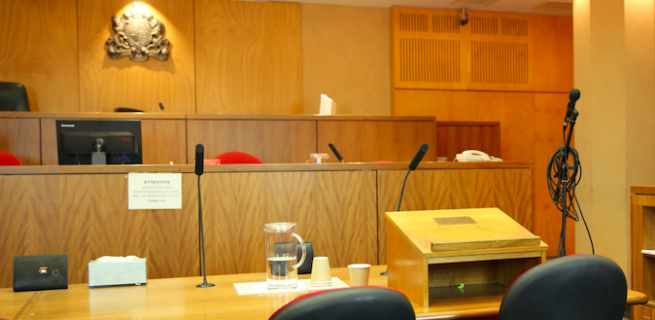District Courts across New South Wales have been plagued by ongoing delays, and are currently experiencing a backlog of more than 2,000 cases.
With tough new bail laws, this means that more and more defendants are left languishing in prison awaiting trial, while victims have to wait longer to testify in court and put events behind them.
Experts have long advised that insufficient funding is part of the problem – and it seems that Attorney-General Gabrielle Upton agrees, recently announcing a funding boost for the District Court.
Funding Package to Ease Delays
The $20 million package will fund several measures designed to ease the current burden, including the appointment of additional acting judges and public defenders, and more sitting dates for the District Court in regional areas and Western Sydney.
On top of this, targeted trial call-over courts will be established to identify matters that can be resolved faster. To complement this measure, prosecution and defence lawyers will be required to meet and discuss issues prior to trial in cases which are expected to run for 20 days or more.
It is hoped that these moves will reduce the current backlog by 600 criminal cases over the next two years.
Currently, a District Court case will take an average of 358 days to be finalised where a defendant is on bail – up 28% since 2007.
The problem is worse in regional areas. Lismore District Court, which services the state’s north coast, has an average waiting time of 401 days between committal and trial – which is almost double the 2013 figure.
And as of May this year, Wagga Wagga District Circuit Court had 56 pending trials – prompting calls by Judge Jennifer English for a full-time District Court in the region.
In announcing the package, Ms Upton stated:
‘The NSW Government is working to ensure the justice system is fast, fair and accessible. Delays put victims through undue stress, make it harder for witnesses to recall key details and strain the resources of the justice system…This is going to make a real difference to our justice system and more importantly to people’s lives.’
The announcement comes after a report by the Law Reform Commission earlier this year found that the District Court has ‘major systemic issues’ and is experiencing a ‘state of crisis’. The report stated that ‘the sheer volume of trial matters that enter the District Court overwhelm the court.’
NSW Law Society President John Eades has also expressed concerns about the delays, saying:
‘The government is obviously funding the police which brings rise to a higher number of charges, but tragically it is not funding the consequence which is the court services, justices and judges and also Legal Aid for defence.’
Former Chief Judge Reginald Blanch has expressed similar concerns, saying that the ‘vast increase’ in criminal trials since the Federal election has been due to an increase in funding for police and a cutback in judicial staff.
Early Guilty Pleas to be a Priority
A cornerstone of the Attorney-General’s proposal is the establishment of mechanisms to encourage early guilty pleas in certain cases.
According to a paper published by the Law Reform Commission, 83% of all criminal cases are resolved by guilty pleas – and 35% of those occurring after matters have been committed for trial. It found that the majority of ‘late’ guilty pleas occur on the first day of trial.
According to the report, late guilty pleas cause ‘considerable inefficiency’ in the court system, including over-listing of court cases, which in turn cause problems for other participants.
The report made a series of recommendations, including encouraging the DPP to settle charges in the Local Court, implementing mandatory criminal case conferencing in all cases, replacing committal hearings in the Local Court with case management where there is the potential for guilty pleas, and a more consistent application of sentencing discounts for guilty pleas.
Other Measures to Ease Delays
The increased funding will complement other recently announced proposals to ease the burden on the Court system.
These include the appointment of two specialist judges to hear child sexual assault cases, which comprise around 29% of all criminal matters heard in the District Court. The two judges – Jennie Girdham SC and Catherine Traill – are expected to commence sitting by the end of the year.
The government has also allocated funding to expand the use of technology in the Court system – including greater use of audio-visual link links.
A working group comprising representatives from Legal Aid, the DPP, the NSW Police Force and the Public Defender’s Office has also been established to deal with the increased workload.











